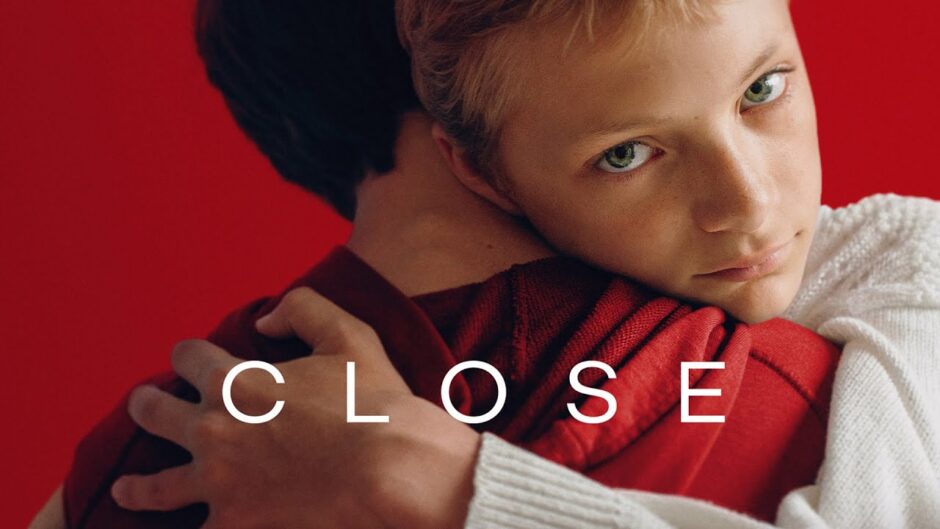Being Close: The Capacity to Hold Conflicting Emotions Together
“You are a little chick, freshly hatched from your egg. You just opened your eyes for the very first time. All the ducks are yellow, and so are you — but you are far more beautiful than the others. You are special. One day, you decide to leave, and you meet a lizard. You wonder what it is because you've never seen one before. You find it strange, yet you like it because it has a very special color, just like you. One day, the two of you set off together and find yourselves on a trampoline. You start jumping so high that you reach the stars.”
In the film Close (2022), our thirteen-year-old protagonist, Leo, tells this bedtime story to our other thirteen-year-old protagonist, Remi. This made-up story beautifully encapsulates their bond — a first love sensed but never spoken. The magic of this story lies in how easily we, too, can feel like that little chick the moment we hear it. In just a few short sentences, it holds a multitude of emotions: curiosity, unease, admiration, excitement, and courage. How precious it is to be able to invent a one-minute story at the age of thirteen that carries so many conflicting emotions together. As adults, perhaps we can only achieve something similar during corporate career development workshops, where five people must gather to create "creative" and "innovative" exercises.

The film’s title has been translated into Turkish as Yakın ("Close") , which perfectly aligns with the story of two friends who feel profoundly close to each other. But what does it really mean to be "close" to someone? The film answers this not through grand declarations, but through the intertwined, often conflicting emotions woven into Leo and Remi’s relationship. We feel their closeness not so much in the scenes where they laugh and run together, but in the moments when they mask their longing for each other — when frustration and aggression surface during their playful pillow fights. yakın It’s a scene as real as the mixed emotions we experience toward our mothers — the frustration of realizing they are not entirely ours, yet feeling a deep, irreplaceable attachment to them at the same time. In a culture like ours, where "paradise lies beneath a mother’s feet," it’s particularly hard for children to feel free to express anger toward their mothers — and for mothers toward their children — without guilt. As a result, we often struggle to hold conflicting emotions side by side, leading us to deny or suppress parts of our experience. When we can't reconcile these inner contradictions, we end up carrying secret burdens, believing we must bear them alone rather than sharing them with others. Thus, our relationships may serve more to maintain our emotional isolation than to foster true connection.
How meaningful it is that the English word close can mean both "near" and "shut." The very emotions we try to banish in fear of losing closeness — anger, sadness, jealousy — may actually close us off from real intimacy. Our ability to sincerely feel close to someone is determined by our capacity to carry conflicting emotions within ourselves. After losing Remi, the complexity of Leo’s emotions shows us that mourning is never made of just one feeling. Leo tries to return to his normal routine, going to school the next day, but we see the regression he experiences — wetting the bed at night, seeking comfort from his older brother.
We see him laughing with friends during a snowball fight, only to later lash out when they make callous comments about Remi. He invites a friend over, enjoying the day, but when he watches his friend sleep at night, he is overwhelmed with longing for Remi. At the year-end party, his smile with friends is genuine — and so is the sorrow in his eyes as he feels Remi’s absence. Leo, who hardly ever outwardly expresses his pain, somehow breaks his arm, and it is only then that we finally see him cry. From the second half of the film onward, we know that Leo feels guilty, heartbroken, angry — yet he still loves and misses his friend deeply. The natural coexistence of opposites is symbolized in the film by Remi’s mother, who is a maternity nurse — someone who brings life into the world even after enduring loss herself. Close reminds us that feeling both near and distant in relationships is part of love itself.



